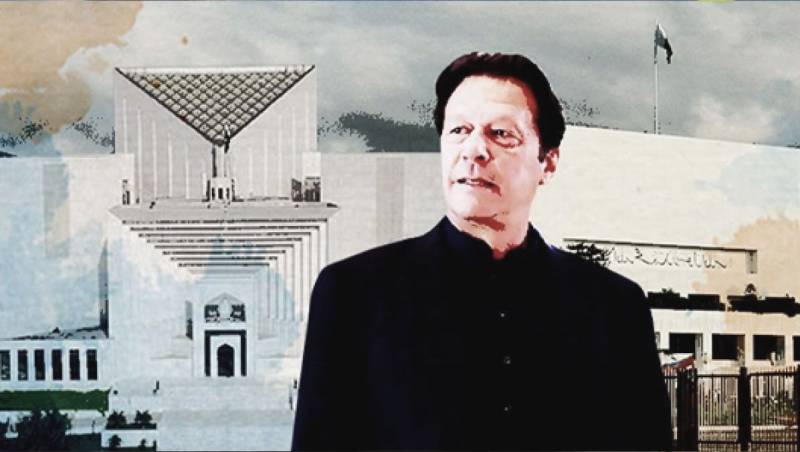
Former prime minister and Pakistan Tehreek-e-Insaf (PTI) Chairman Imran Khan, who remains in prison in a case filed under the amended Official Secrets Act, has challenged the recent amendments made to the Official Secrets Act and the Pakistan Army Act before the Supreme Court.
The petition was filed by Imran through the senior party leader and his lawyer Advocate Shoaib Shaheen, invoking Article 184 (3) of the Constitution.
Article 184 (3)
Original Jurisdiction of Supreme Court(3) Without prejudice to the provisions of Article 199, the Supreme Court shall, if it considers that a question of public importance with reference to the enforcement of any of the Fundamental Rights conferred by Chapter I of Part II is involved, have the power to make an order of the nature mentioned in the said Article.
In the petition, Imran argues that the amendments fall afoul of the fundamental and basic human rights enshrined in the Constitution and that empowering secret state agencies to enter private premises to search it without a warrant is unconstitutional. It further argues that it violates Article 8 of the Constitution.
Article 8: Laws inconsistent with or in derogation of fundamental rights to be void.
Moreover, the petition refers to the controversy surrounding the laws involving President Alvi, who had claimed he never signed the laws and asked for them to be returned to parliament as bills, but they became law after the time period available expired.
Shortly after the bills became law last month, the PTI had announced that it would move the apex court against it.
In a statement issued by the party after the bills became law, a PTI spokesperson said that for the past 16 months, a disturbing tradition has taken hold where all efforts have been made to deviate from the Constitution, violate the law, push democracy towards authoritarianism and make the state subservient to certain personalities.
The entirety of the state machinery, especially the Parliament and the Election Commission, are now working on signals from an invisible force rather than answering the Constitution.

